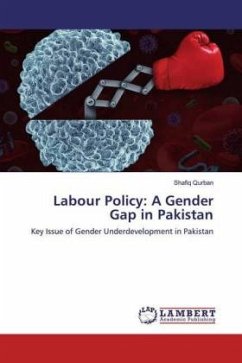
Navigating the Challenges and Celebrating the Triumphs of Senior Management in the Era of Empowered Women in Corporate Boardrooms
Versandkostenfrei!
Versandfertig in über 4 Wochen
22,99 €
inkl. MwSt.

PAYBACK Punkte
11 °P sammeln!
Although women represent half of the world's population, their role in society has been largely marginalized in various fields and professions, from academia to medicine. The lack of women in business and economics, especially at the decision-making level, is particularly poignant, as women have increasingly more influential purchasing power. Nowadays, women are becoming recognized as the drivers of the world economy, making 80% of consumer purchasing decisions in America1 and the UK,2 and are rapidly assuming a growing share of personal wealth globally; for example, by 2020, half of new Briti...
Although women represent half of the world's population, their role in society has been largely marginalized in various fields and professions, from academia to medicine. The lack of women in business and economics, especially at the decision-making level, is particularly poignant, as women have increasingly more influential purchasing power. Nowadays, women are becoming recognized as the drivers of the world economy, making 80% of consumer purchasing decisions in America1 and the UK,2 and are rapidly assuming a growing share of personal wealth globally; for example, by 2020, half of new British millionaires are expected to be women.3 The percentage of women has exceeded 50% at many colleges and universities worldwide, and reaches nearly 50% in the workforce of developed countries. The push for more women in decision-making positions has run parallel with the fight for gender equality. Since the emergence of the Suffragette movement in the US and the "New Woman" at the beginning of the twentieth century, women have been tearing away at the walls that separate women and men in the workplace. Currently, with more men and women advocating for an equal playing field, gender equality has become a vital component of domestic and international policy and development. However, this movement so far has had limited success. Because of persistent gender gaps, there has been a renewed vigor in the fight against gender inequality. For example, the OECD and World Bank have recently constructed websites that address gender equality and its importance to economic development. Additionally, in 2007, the European Union established the European Institute for Gender Equality in Vilnius, Lithuania












